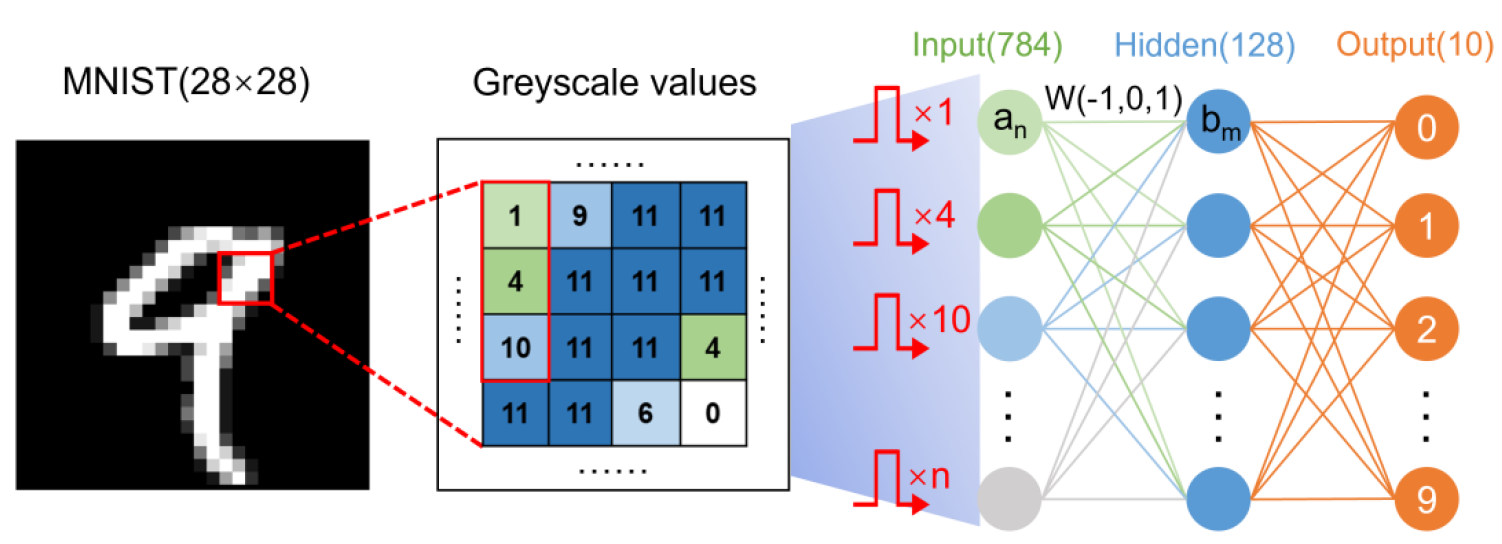PhD project: AI-Driven Discovery of Quantum Materials for Neuromorphic and Energy-Efficient Computing
Project description

Background
Quantum materials, such as Weyl semimetals, Kagome lattices, and graphene, are redefining our understanding of how matter behaves at the nanoscale. Their extraordinary electronic and magnetic properties hold the promise of transforming information processing, enabling technologies that are faster, smaller, and vastly more energy-efficient. These materials could underpin next-generation devices, from neuromorphic chips and smart sensors to wearable and adaptive electronics that seamlessly integrate with human environments.
Recent discoveries of magnetism in atomically thin crystals have opened unprecedented possibilities for spin-based quantum logic and data storage, offering new paradigms beyond conventional CMOS technologies. However, to fully harness their potential, AI and machine learning (ML) are now indispensable — to explore vast materials spaces, reveal hidden correlations, and design materials with targeted functionalities.
As the exponential growth of digital data drives an unsustainable rise in global energy demand, projected to exceed the worldwide electricity production by 2037, this research addresses an urgent challenge: how to achieve energy-efficient, intelligent computing architectures inspired by the adaptive efficiency of the human brain?
Project Goals
In this PhD project, you will combine quantum materials modelling with machine learning and AI algorithms to accelerate the discovery and design of materials for neuromorphic computing and low-power information technologies.
The successful candidate will:
- Develop AI-guided frameworks for predicting magnetic and electronic behaviour in layered quantum materials.
- Integrate data-driven approaches with first-principles and spin-dynamics simulations to identify compounds for ultra-efficient memory and logic devices.
- Explore the role of quantum magnetism and topological spin textures in enabling neuromorphic behaviour such as memory retention, synaptic plasticity, and self-organization.
- Collaborate with experimental partners to validate computational predictions using neutron scattering, spectroscopic and microscopy techniques.
This interdisciplinary research will give you a comprehensive understanding of the materials-physics–AI interface, and its potential to drive the next revolution in information technology.
Computational Skills and Training
You will acquire expertise in:
- First-principles and many-body methods for strongly correlated systems.
- Monte Carlo and Landau-Lifshitz-Gilbert simulations for spin textures.
- Machine learning for materials prediction and optimisation (neural networks, graph-based models, reinforcement learning).
- High-throughput data generation and database curation using AI-driven pipelines.
- Neuromorphic computing architectures based on quantum and magnetic materials.
Training will combine method development and practical applications using in-house and open-source codes. You will have access to world-class computational facilities via ARCHER2 and CIRRUS (UK National HPC Service), supported by the University of Edinburgh and EPCC.
International Collaborations and Internships
This project is embedded in a network of leading research institutions, including:
- The Chicago Quantum Exchange (CQE), Argonne National Laboratory, and Northwestern University (US)
- The Institut Laue-Langevin (France)
- National University of Singapore
- Edinburgh’s School of Physics & Astronomy and School of Chemistry
The successful candidate will participate in collaborative research exchanges, workshops, and meetings, with the opportunity for 10-week internships at CQE partner institutions (ANL or NU) to broaden your interdisciplinary expertise.
Candidate Profile
We welcome candidates with a strong background in Physics, Materials Science, Computer Science, or related disciplines.
Experience in one or more of the following areas is desirable:
- Machine learning, neural networks, or AI algorithms
- Quantum materials, spintronics, or condensed matter theory
- Computational methods (e.g. VASP, Quantum ESPRESSO, MuMax3, Vampire)
- Programming languages (Python, C/C++) and data analytics tools (PyTorch, TensorFlow, scikit-learn)
A passion for computational discovery, interdisciplinary work, and sustainable technology is essential.
How to Apply
Applications should include:
- CV (including any publications)
- Motivation letter describing your research interests and relevant experience
- Contact details of three academic referees
Deadline: 15 February 2026
Informal enquiries:
Dr. Elton Santos, esantos [at] ed.ac.uk
Project supervisor
- Dr. Elton Santos (School of Physics & Astronomy, University of Edinburgh)
The project supervisor welcomes informal enquiries about this project.
Find out more about this research area
The links below summarise our research in the area(s) relevant to this project:
- Find out more about Quantum Ordering.
- Find out more about Computational Materials Physics.
- Find out more about the Institute for Condensed Matter and Complex Systems.
What next?
- Find out how to apply for our PhD degrees.
- Find out about fees and funding and studentship opportunities.
- View and complete the application form (on the main University website).
- Find out how to contact us for more information.
More PhD projects
- Browse other Quantum Ordering projects.
- Browse other Computational Materials Physics projects.
- Browse other Institute for Condensed Matter and Complex Systems projects.
- Browse all PhD research opportunities in the School of Physics & Astronomy.
- Browse PhD research opportunities elsewhere in the University of Edinburgh.

